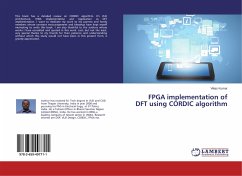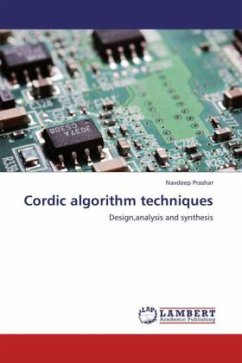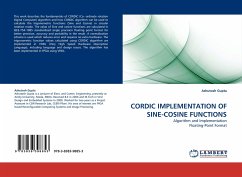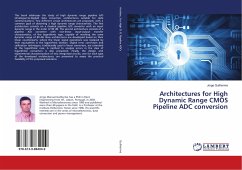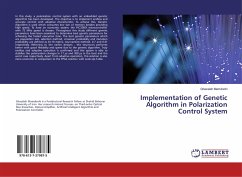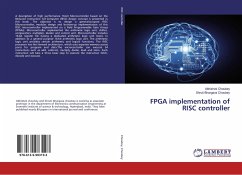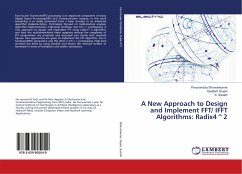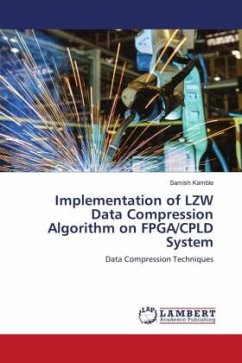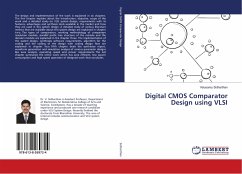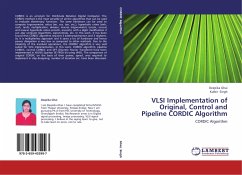
VLSI Implementation of Original, Control and Pipeline CORDIC Algorithm
CORDIC Algorithm
Versandkostenfrei!
Versandfertig in 6-10 Tagen
27,99 €
inkl. MwSt.

PAYBACK Punkte
14 °P sammeln!
CORDIC is an acronym for COrdinate Rotation Digital Computer. The CORDIC method is the most versatile of all the algorithms that can be used to evaluate elementary functions. The same hardware can be used to compute trigonometric ratios (sin, cos, tan, etc.), hyperbolic ratios (sinh, cosh, tanh), multiplication, division, inverse trigonometric (arcsin, arccos) and inverse hyperbolic ratios (arcsinh, arccosh), with a slight modification it can also compute logarithms, exponentials, etc. In this work, it has been found that CORDIC algorithm requires 3 adders/subtractors and 3 registers. So it is...
CORDIC is an acronym for COrdinate Rotation Digital Computer. The CORDIC method is the most versatile of all the algorithms that can be used to evaluate elementary functions. The same hardware can be used to compute trigonometric ratios (sin, cos, tan, etc.), hyperbolic ratios (sinh, cosh, tanh), multiplication, division, inverse trigonometric (arcsin, arccos) and inverse hyperbolic ratios (arcsinh, arccosh), with a slight modification it can also compute logarithms, exponentials, etc. In this work, it has been found that CORDIC algorithm requires 3 adders/subtractors and 3 registers. So it is multiplierless approach and it saves a lot of hardware and hence power dissipation is very low as compared to other methods. Due to the simplicity of the involved operations, the CORDIC algorithm is very well suited for VLSI implementation. In this work, CORDIC algorithm, pipeline CORDIC, control CORDIC and DFT (Discrete Fourier Transform) have been implemented in XILINX Spartan 3E FPGA kitusing VHDL. The comparison of original CORDIC on the basis of their power, speed, area required to implement in chip designing, number of iteration etc. have been discussed.





